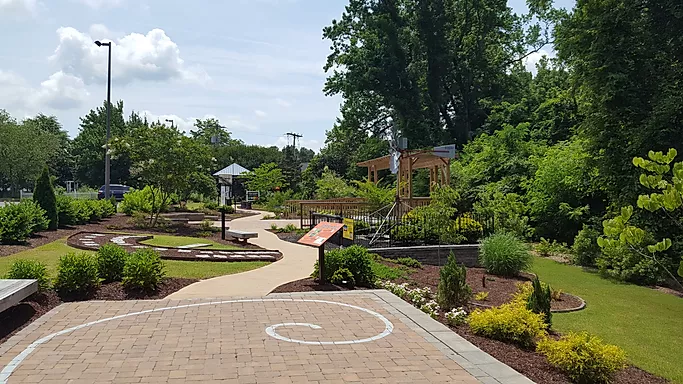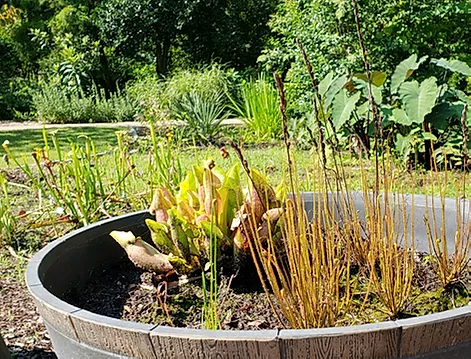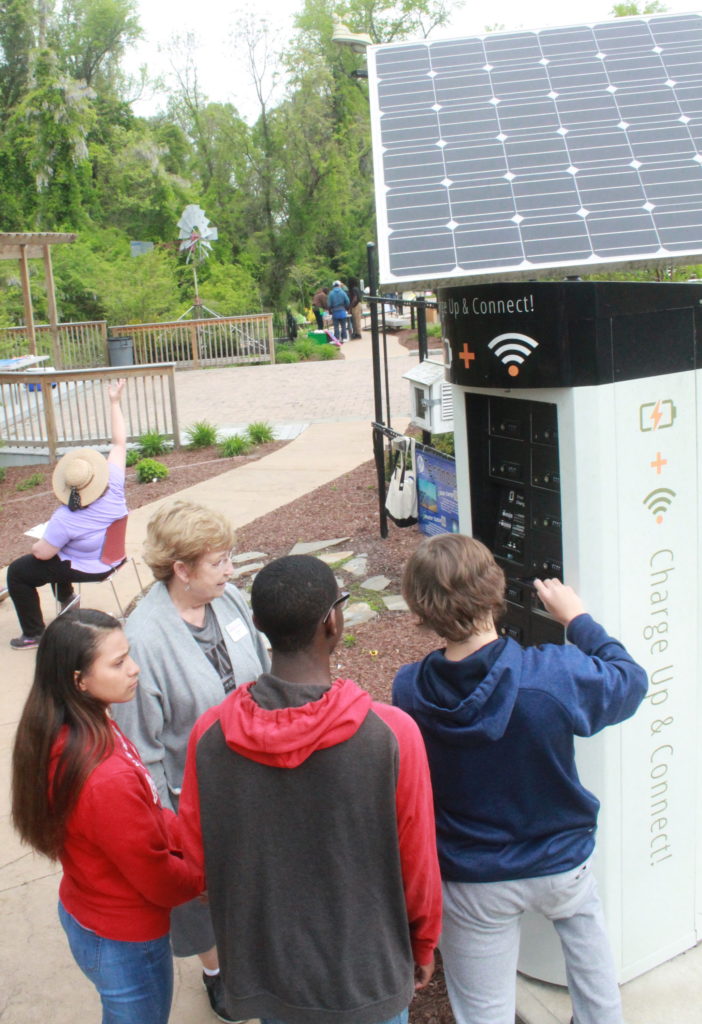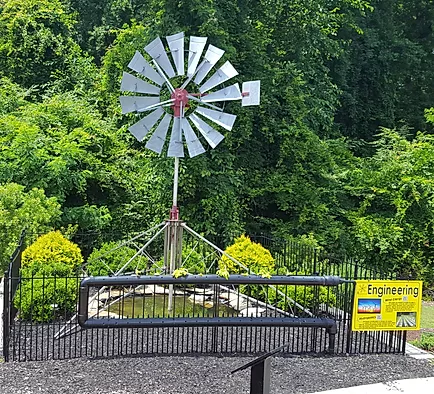Making STEM Come Alive
go.ncsu.edu/readext?651868
en Español / em Português
El inglés es el idioma de control de esta página. En la medida en que haya algún conflicto entre la traducción al inglés y la traducción, el inglés prevalece.
Al hacer clic en el enlace de traducción se activa un servicio de traducción gratuito para convertir la página al español. Al igual que con cualquier traducción por Internet, la conversión no es sensible al contexto y puede que no traduzca el texto en su significado original. NC State Extension no garantiza la exactitud del texto traducido. Por favor, tenga en cuenta que algunas aplicaciones y/o servicios pueden no funcionar como se espera cuando se traducen.
Português
Inglês é o idioma de controle desta página. Na medida que haja algum conflito entre o texto original em Inglês e a tradução, o Inglês prevalece.
Ao clicar no link de tradução, um serviço gratuito de tradução será ativado para converter a página para o Português. Como em qualquer tradução pela internet, a conversão não é sensivel ao contexto e pode não ocorrer a tradução para o significado orginal. O serviço de Extensão da Carolina do Norte (NC State Extension) não garante a exatidão do texto traduzido. Por favor, observe que algumas funções ou serviços podem não funcionar como esperado após a tradução.
English
English is the controlling language of this page. To the extent there is any conflict between the English text and the translation, English controls.
Clicking on the translation link activates a free translation service to convert the page to Spanish. As with any Internet translation, the conversion is not context-sensitive and may not translate the text to its original meaning. NC State Extension does not guarantee the accuracy of the translated text. Please note that some applications and/or services may not function as expected when translated.
Collapse ▲Extension Master Gardener℠ Volunteers in Wilson County Show Us How

The patio features the Fibonacci spiral.
Extension Master Gardener volunteers at the Wilson Botanical Gardens have created an innovative garden in hopes of inspiring young people to pursue careers in science, technology, engineering, and math (STEM). Wilson County is home to several science and technology-related companies. Yet these companies traditionally must look outside the region for qualified employees due to the county’s below-average graduation rates.
The mission of the Wilson Botanical Gardens is to promote horticultural education through the use of outdoor classrooms. The STEM Garden provides middle and high school students with concrete, hands-on experience with STEM principles and offers local educators a unique setting in which to conduct lessons. Divided into four areas, the garden brings each STEM concept to life.

The bog garden features native and carnivorous plants.
In the SCIENCE area, a bog garden illustrates water conservation, on-site filtration to remove pollutants, and erosion control. This area also exposes students to native flora such as carnivorous plants and describes insect-plant interactions.

Cell phones are charged by the sun.
The TECHNOLOGY area has a solar-powered charging hub and a web-based weather station that explains power generation while emphasizing alternative energy sources.

Wind power is harnessed to pump water.
The ENGINEERING area features a working windmill that produces power to pump water through a hydroponics system, an environmentally friendly alternative to growing plants in soil.

The Fibonacci spiral is a mathematical concept frequently seen in nature.
Kai Schreiber, Flickr, CC BY-SA 2.0
The MATH garden includes geometric plantings for use in mass and volume calculations. A large-scale backgammon game is used to teach skills such as prediction, probability and the calculation of percentages. And the patio incorporates the Fibonacci Spiral, a mathematical concept that appears repeatedly in nature.
All of the components in the garden correlate with the North Carolina Department of Public Instruction’s Common Core State Standards, which means educators can connect them to their curriculum requirements and learning benchmarks. Already educators are seeing positive results. Post-visit surveys indicate the majority of students improved their understanding of wetland environments, alternative energies, renewable resources, and hydroponic growing systems. Through the STEM garden, Master Gardener volunteers are helping equip young people with the confidence and knowledge to pursue STEM careers and make a difference in their community.
To recognize this fantastic work, the Extension Master Gardener program in Wilson County has been awarded NC State Extension’s 2019 Search for Excellence Award. This award recognizes outstanding educational, Master Gardener volunteer-led group projects that result in significant learning. Congratulations to Master Gardener volunteer project leaders Karen Blume, Tap Tapie, Judy Buzard, Sandy Goetz, and Linda May. The garden was made possible thanks to funding from the NC GlaxoSmithKline Foundation, an NC Rural Economic Development Commerce grant, and other local partners.
Congratulations to Master Gardener volunteer project leaders Karen Blume, Tap Tapie, Judy Buzard, Sandy Goetz, and Linda May. The garden was made possible thanks to funding from the NC GlaxoSmithKline Foundation, an NC Rural Economic Development Commerce grant, and other local partners.
The Wilson Botanical Garden is open 365 days a year from dawn to dusk. To schedule a tour of the STEM garden for middle school or high school students or to learn more about the Extension Master Gardener program in Wilson County, contact Michelle Daughtridge N.C. Cooperative Extension county operations support specialist or Cyndi Lauderdale, N.C. Cooperative Extension horticulture agent in Wilson County, 252-237-0111.
ABOUT North Carolina Extension Master Gardener Volunteers
Master Gardener volunteers support the mission of N. C. Cooperative Extension by educating residents about safe, effective and sustainable gardening practices that grow healthy people, gardens, landscapes, and communities. Their vision is a healthier world through environmental stewardship.
To learn more about the NC State Extension Master Gardener program in your community, contact your local N.C. Cooperative Extension center.


